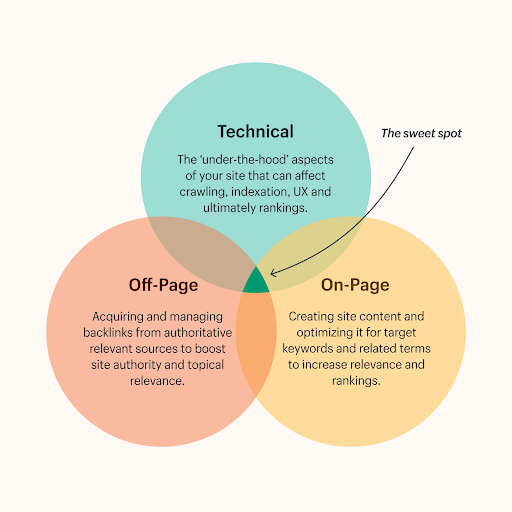
SAMAs Advice— 8 Reasons Blogs are Good for Business
According to Hubspot—89% of consumers read blogs weekly. Being able to stand out from the crowd—it’s a tactical tool for brands to utilize, writing blogs dedicated to their knowledge and expertise regarding their products/services. SAMA will outline the 8 reasons why (in marketing) blogs are suitable for your business.
1. Drive Traffic
When a consumer (new or established with your brand) looks up a product that you sell and types “keywords” into Google—you want to be the first three (at least) pages to pop up. Not only does a blog drive more traffic to your website, but your brand’s name, logo, products, and services can be tripled online by using SEO phrases and keywords. In other words, they will see more of you.
2. Increase SEO
As mentioned above, part of search engine optimization (SEO) drives organic traffic to a website. Search engine results are calculated by new content, the number of indexed pages, and keywords.
Businesses can improve all these areas and appear higher on the search engine result pages just by having a blog. The key to blogging is providing relevant and quality content and new posts. Blogging about your industry, brand name, products, customers, and events is vital.
Here is how SEO works:

3. Grow an Email List
If you have been following along to SAMAs blogs—we give pivotal advice on the importance of email marketing. Using email to notify consumers about your ‘new’ blog is crucial. If you don’t use email marketing but take the time and effort to construct a blog—who will know about it? Visit SAMA to learn more on this subject.
4. Social Media Content
Social media provides an easy way for businesses to share content. Once a blog post is created, there is no need to rewrite it for social media. Provide a link to the blog on a social network like TikTok, Instagram, or Twitter— and ask readers to share or like the post. Be sure to share across multiple social media platforms to reach more people! The further your reach—the more exposure you gain.
5. Attract New Leads
With every blog post created and shared—you open the online floodgates for more indexed pages to appear under your brand name. (As we said above—the more content you publish—the more you’ll be recognized).
It’s essential to add a CTA (Call to Action) to the end of each blog—for example:
- Visit us Today
- Shop our Store
- Book a Free Consultation
6. Establish Trust

Blogs can make a company appear more professional by showing leadership within an industry. Some best-performing web content includes videos, lists, and how-to posts. Blogs can also answer common customer questions, such as how to use a product or solve a common issue with a product. Increasing the audience’s trust helps establish a business as more knowledgeable. Education is one of the top customer retention strategies to keep current customers, and consistency will reign in new leads.
In many ways, you can appeal to people’s emotions through branding and make them feel more connected to your company. Some companies add animals (dogs, cats) to their ads to add a personal touch. People respond—which is what you want.
When building trust, it’s essential to keep these digital marketing strategies in mind. They also apply to blog posts and include:
- Personalize Content
- Reach a Larger Demographic (Use more Channels).
- Schedule Posts to Save Time
7. Expanding your Brand
Show the personal side of your business. How did you begin? What obstacles did you achieve, and how do you value your success?
If consumers can relate to a brand personality, they are more likely to engage, trust, and eventually purchase. With blogging, you can reach millions globally—even if you do not offer products/services in certain regions. Knowing your ‘supply’ and ‘demand’ for future growth is vital.
8. Engage with Consumers
Writing a blog allows you to communicate with prospects and retarget established consumers. Engagement, exposure, and relationship building are the three key players in marketing.
Knowing your audience and demographic will assist you in learning how to construct your blog (do you use slang terminology or write with an informative voice?) Either way, whether on social media—in a brick-and-mortar or strictly online—engagement is critical, and blogging allows a brand to achieve higher success.






